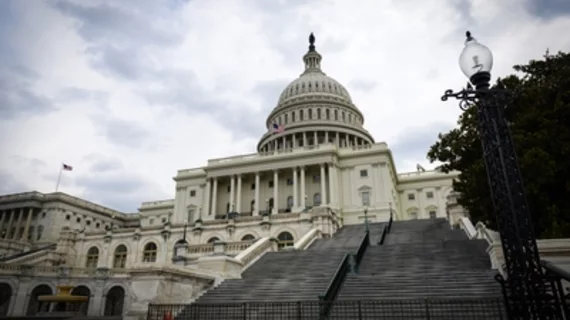House Dem leader: ‘Medicare-for-all’ should be ‘evaluated’ if party takes House
If Democrats take the majority in the House in November’s midterm elections, the single-payer, “Medicare-for-all” transformation gaining traction among the party’s supporters should be “evaluated” in the next Congress, said House Minority Leader Nancy Pelosi, D-California.
Pelosi didn’t endorse any single-payer proposals as other Democrats have in the Senate when Sen. Bernie Sanders, I-Vermont, introduced his “Medicare-for-all” legislation in September 2017. She did reiterate her support for a government-run insurance option, something which had been left out of the ACA when it was passed in 2010.
“I've always been for a public option so I'm always eager to talk about that," Pelosi said in a May 6 press conference. “Some of the other issues that have been proposed have to be evaluated in terms of the access that they give, the affordability of it and how we would pay for it, but again it's all on the table.”
Many Democratic candidates for House seats have publicly supported “Medicare-for-all.” Polls from the Kaiser Family Foundation have shown sizeable support for single-payer healthcare among Democrats and a slim majority of voters overall, but that support did weaken when arguments against the change, like it would raise taxes or give government control over healthcare, were explained.
Healthcare in general has been repeatedly cited as the top issue for voters heading into this year’s elections, especially among Democrats.
Any move towards single-payer is likely to be met with stiff resistance from major healthcare organizations and lobbying groups. Some have been dismissive of the chances for “Medicare-for-all” to become law, like the American Hospital Association.
“What a great idea,” said Tom Nickels, the AHA’s executive vice president of government relations, at a conference earlier this year. “Let’s take a program that underfunds everything and apply it to everybody.”
Matt Eyles, the new CEO of America’s Health Insurance Plans, said to Vox in May that he’s taking those proposals seriously, saying such a change would be “enormously disruptive” while posing an obvious risk to the health insurers he represents.

